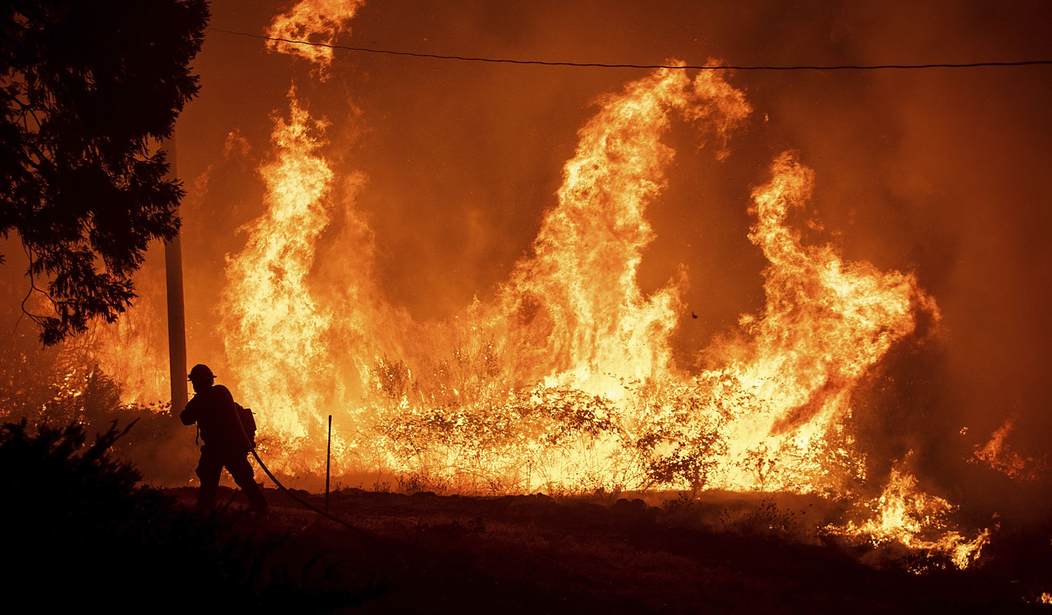Summer is coming to an end. Mercifully, there were no major wildfires in Utah. But during drier years, the sight of a convection column and the smell of smoke is enough to make me reminisce. And I will admit to getting a lump in my throat every spring when I see the E6 wildland engines rolling through the streets on their way to the mountains. I enjoyed that time in my life. Not to mention, I was younger, stronger, and better-looking. And I had more hair. I started in fire the summer after 9/11, in part because I wanted to do something to serve in my own way, and partly because being in firefighting was a hell of a lot cooler than working in radio. I also liked driving the truck.
I was thinking about those days as I read an op-ed in the New York Times by Claire Cameron. In the piece titled “We Thought We Were Saving the Planet but We Were Planting a Time Bomb,” Cameron relates her experience during college planting black spruce saplings in areas of Ontario that had been logged. Cameron explains that what she did not know is that back spruce trees are very combustible and planting masses of them in one area is practically engraving an invitation for a fire. Normally, black spruce trees are found among other species, which reduces the risk of them becoming a fire hazard. Cameron seems to be expressing regret for planting the trees as she watched the massive fires in Ontario this summer.
Cameron should let herself off the hook. Whoever organized that particular project years ago should have known better and should have at least talked to a forester. Another fact is that while climate change is politically sexy and emotional, it is not the cause of every catastrophe in the world. Finally, it is hubris to think that we know more about the environment than whatever spiritual force someone may believe in. Or, for that matter, the environment itself.
Despite what you may have heard about the fragility of the earth, ecosystems do a remarkable job of taking care of themselves. Fire is a natural part of the life of a forest. Fire helps keep forests healthy and vital. Pine cones in certain serotinous trees need fire to open up and drop their seeds. In an ideal forest, fire cleans out litter, duff, and dead vegetation, helps nutrients return to the soil, and allows for new growth.
And the intervention of man is not a bad thing. Native Americans used controlled burns to help maintain their surroundings. On a fire I worked on in the Ashley National Forest, a clear-cut area helped slow a fire down long enough to help us get a handle on it. That clear-cut saved us a lot of time and trouble.
One of the reasons that fires reach such epic proportions today is that after the Big Burn of 1910, a policy was established that dictated that all fires needed to be put out as quickly as possible. That was one of my jobs with the state forestry department. It was called an “initial attack.” That policy meant that fire was unable to do its normal thing. But the thinking has evolved since then, and some fires are allowed to do the work that God intended them to do so long as no structures or “values” are threatened. And a “value” can even be something historical. I remember that before one controlled burn, we searched for hours for an abandoned antique car that needed to be protected because it was a “cultural resource.” The car had decayed to the point that it was a small pile of rust that was barely visible in the sagebrush. I asked my boss if we still needed to protect it. Apparently, it wasn’t just rust. It was historic rust.
When it comes to wildfires and even climate change, we need to hearken back to the line from the classic movie, “Cool Hand Luke”: “What we have here is a failure to communicate.” We need to look beyond government policies and popular dogma. Greta can glare at us all she wants. Denying the fact that humans can hurt the environment is folly and potentially dangerous. But blindly devoting oneself to the religion of climate change and denying any other information or potential factors in a given problem, to the point that everyone else becomes a miserable serf, is equally dangerous and destructive. There is a middle ground that can be reached that can benefit everyone and not just the top-tier elites who profit handsomely from it. A fire may not be the result of climate change at all but rather a result of human intervention, no matter how well-intentioned.










Join the conversation as a VIP Member